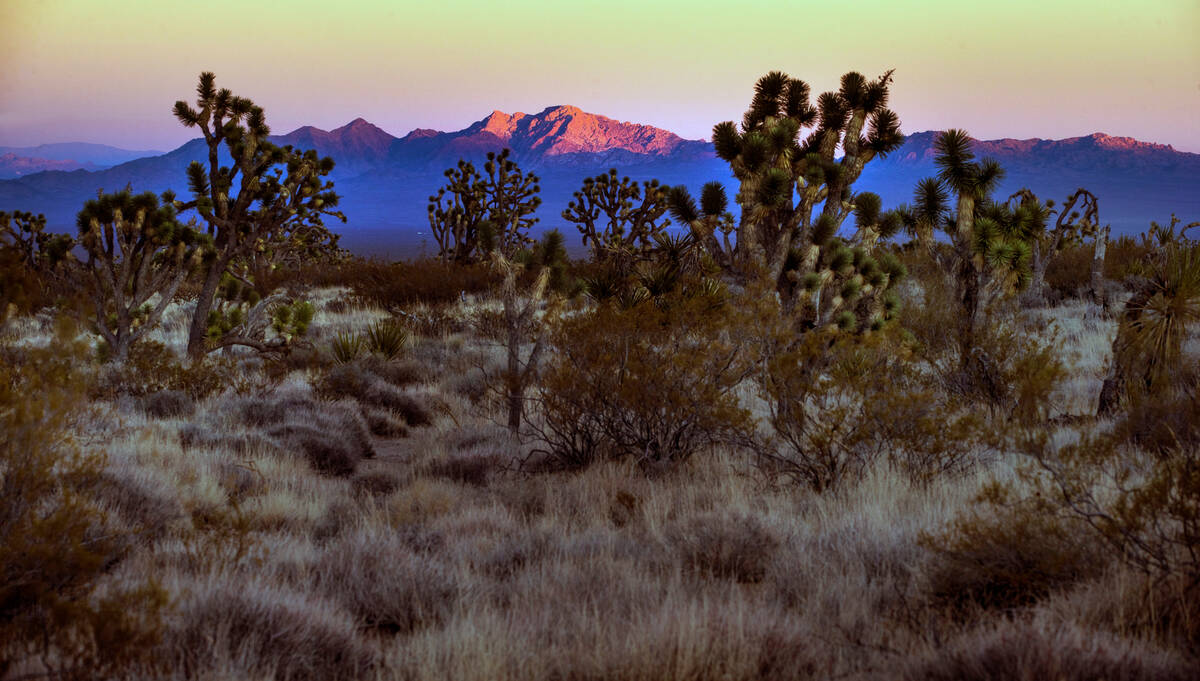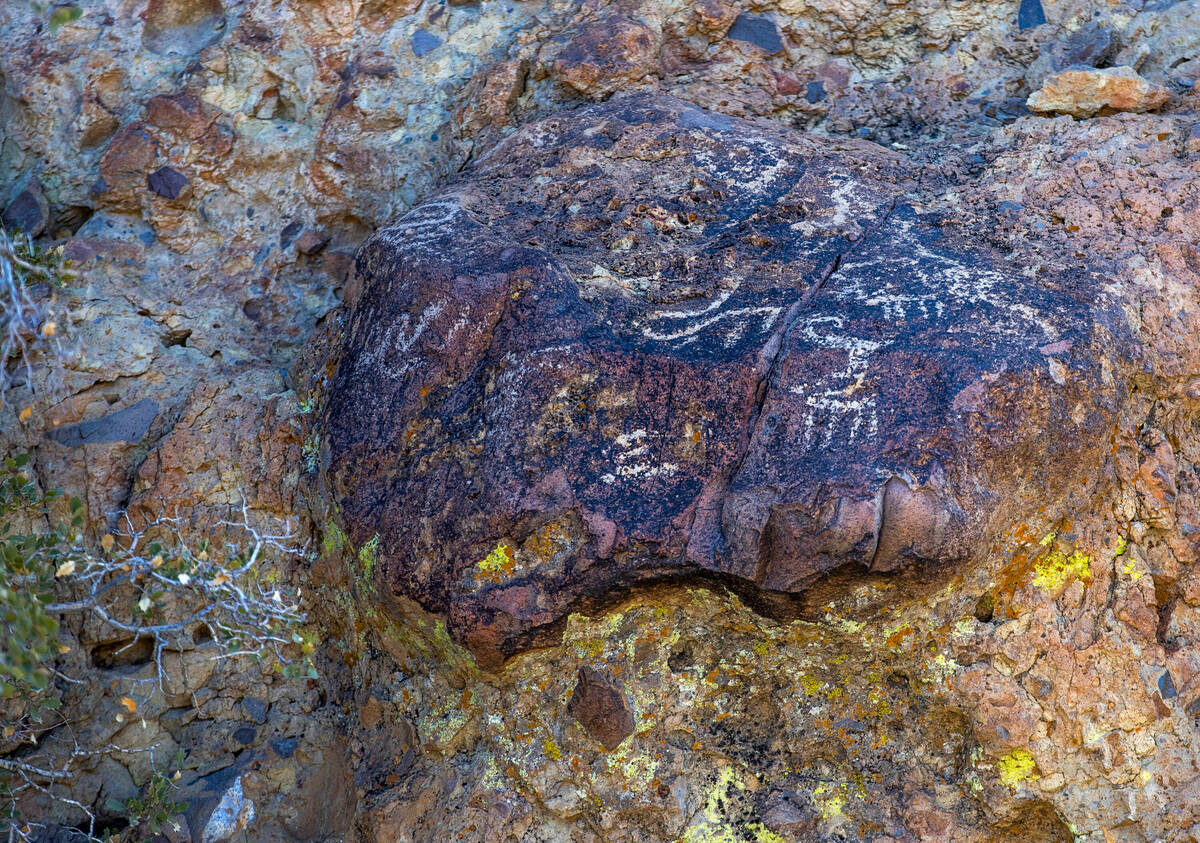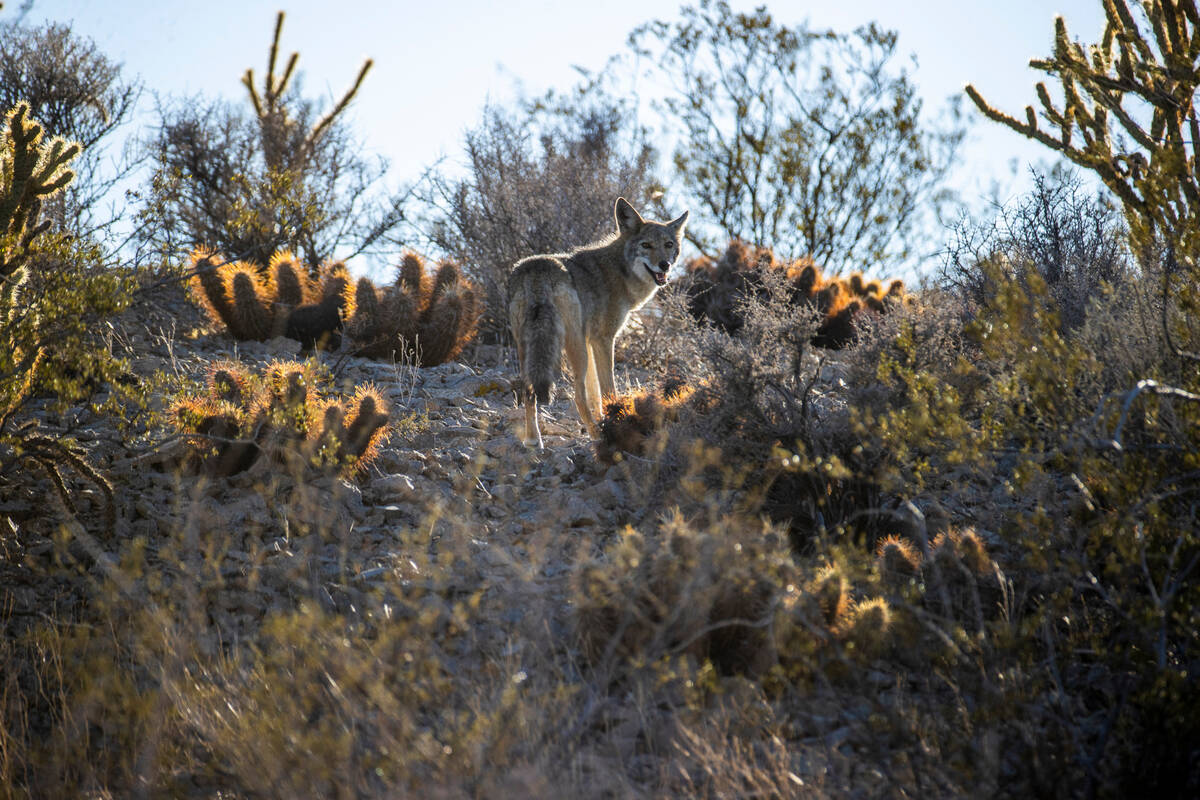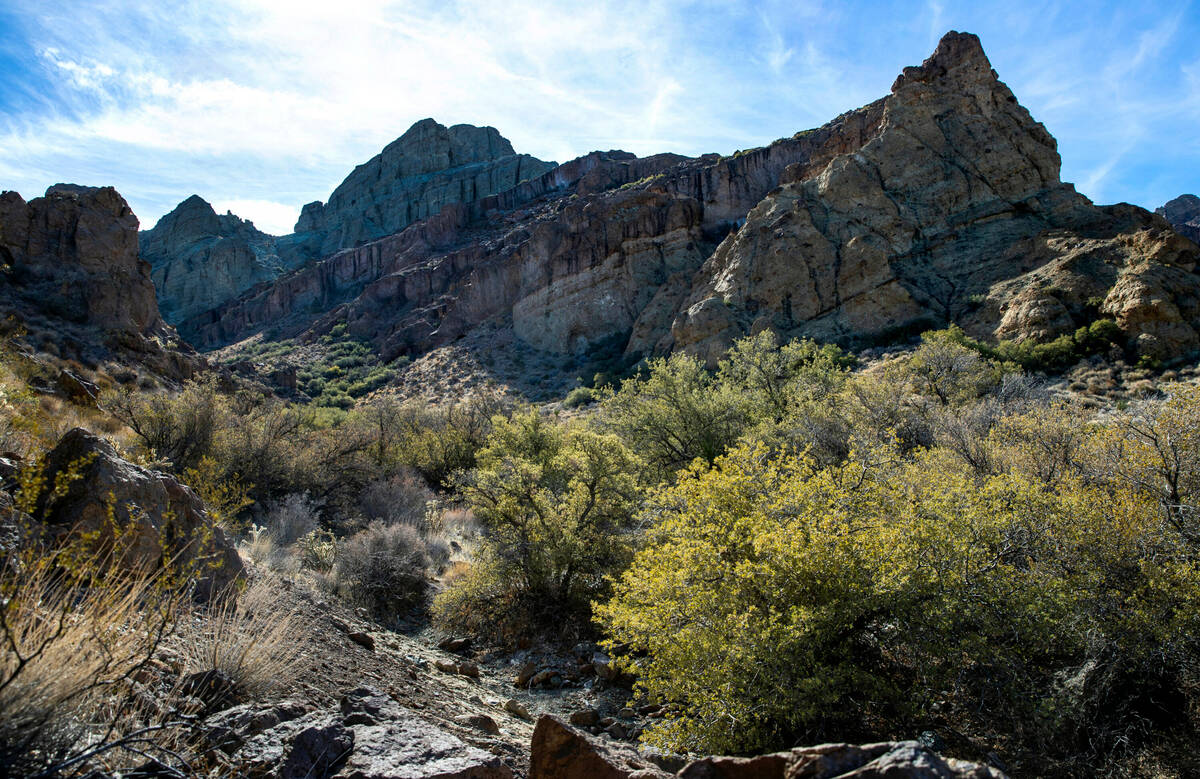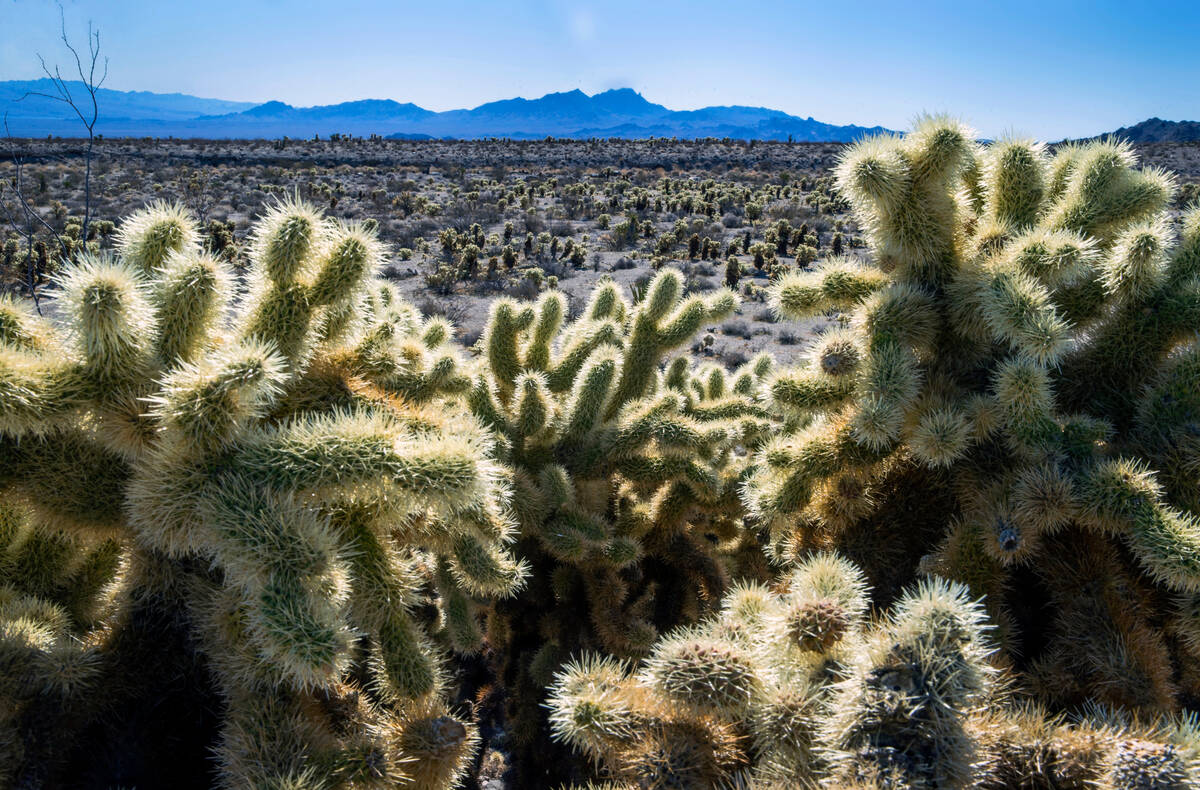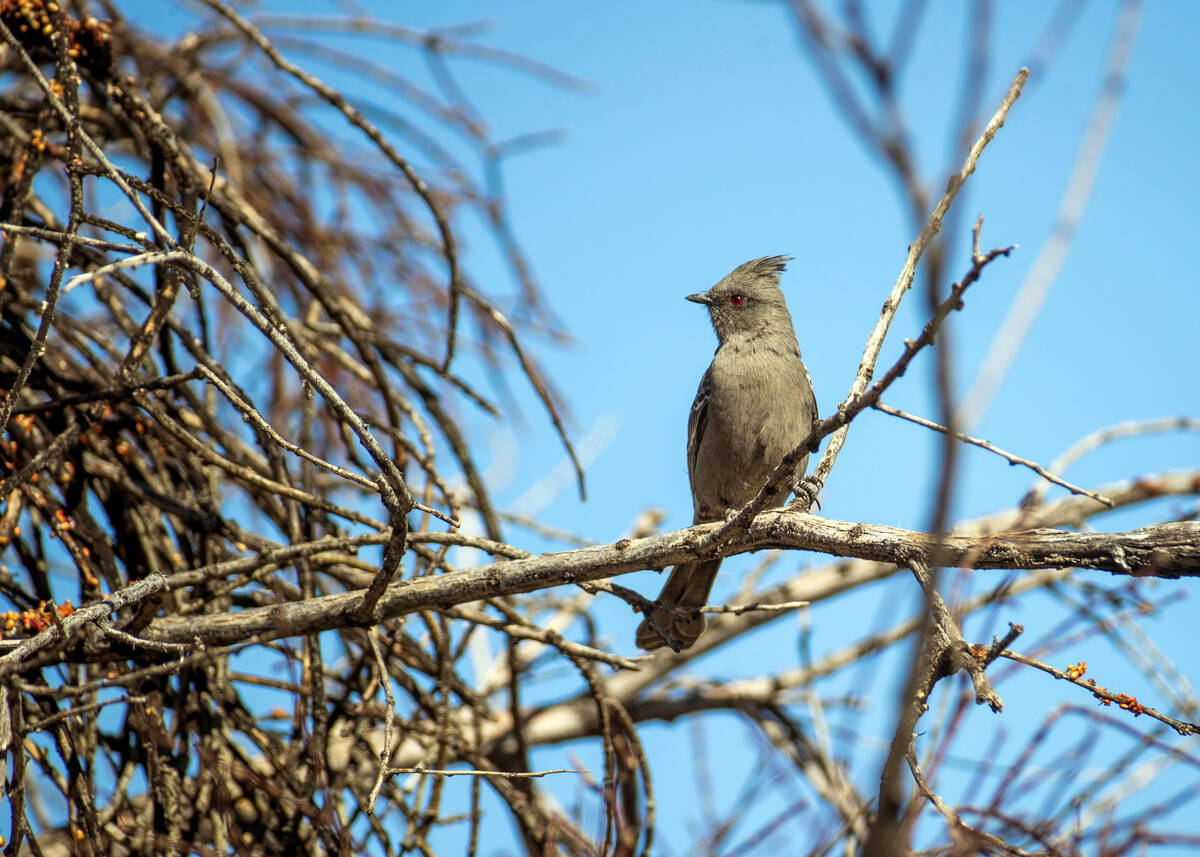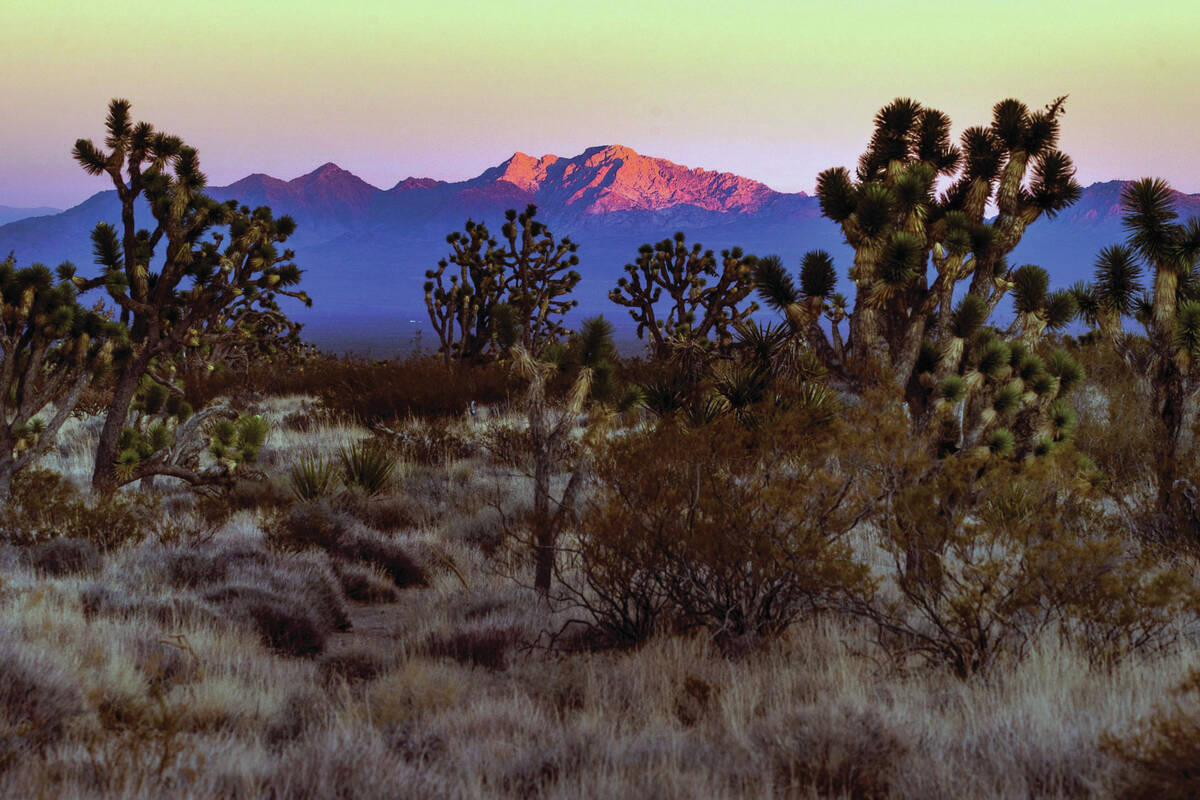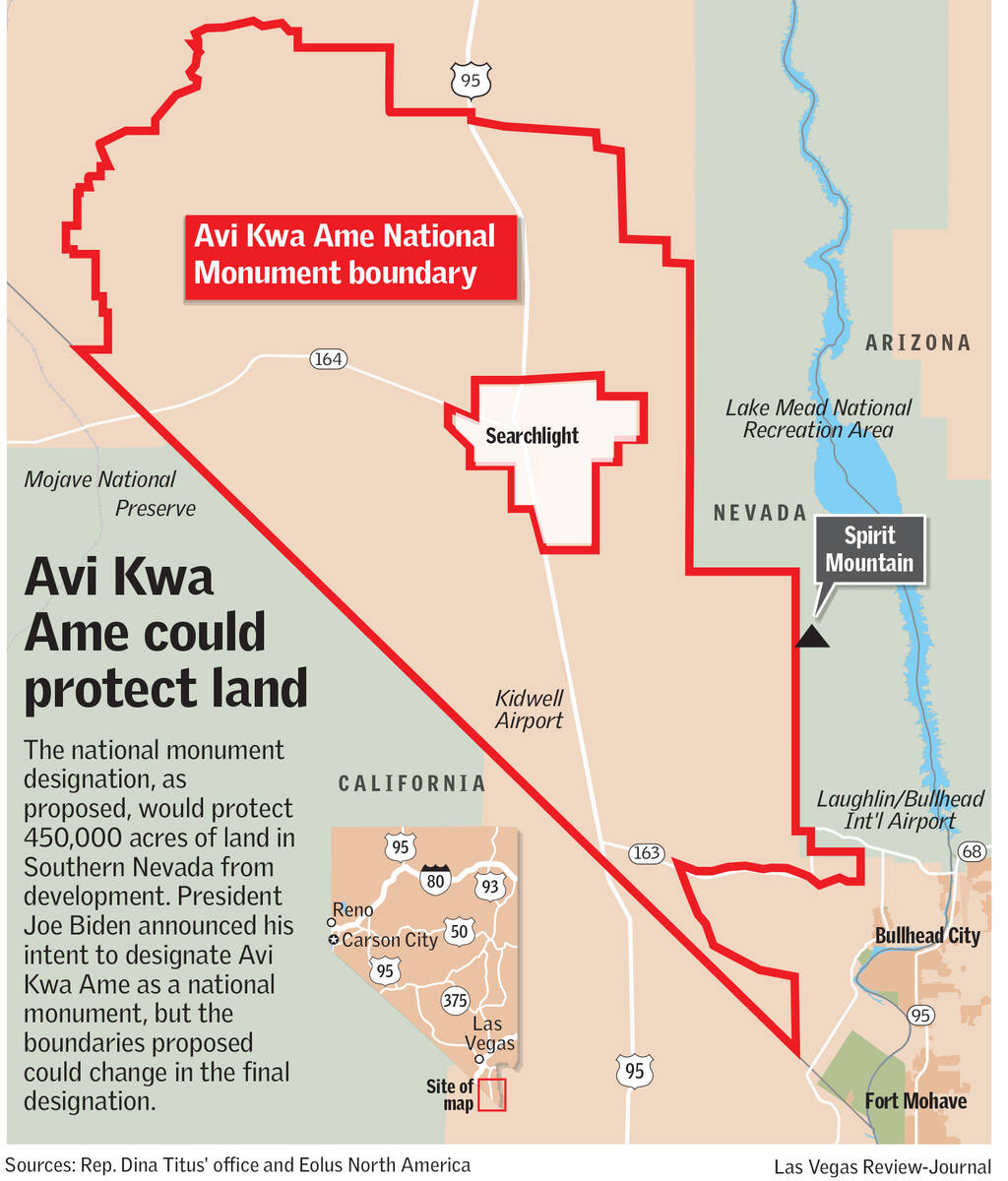Avi Kwa Ame recognized; Biden calls for national monument designation
Nevada’s Avi Kwa Ame, meaning “Spirit Mountain” in Mojave, will become a national monument, President Joe Biden announced Nov. 30 at his White House Tribal Nations Summit.
Tribes, conservationists and outdoor recreation enthusiasts have worked for years to protect the area in Southern Nevada. The Avi Kwa Ame Coalition leading the effort calls for 450,000 acres of land stretching from the Newberry mountains in the east to the New York, South McCullough, Castle and Piute mountains in the west to be protected and preserved for future generations from development.
Groups that have spearheaded the effort thanked Biden for his plans and urged him to designate the area immediately and without alterations to the plans and its proposed boundaries.
“We ask that the Biden administration now keep its promise to tribal nations and designate Avi Kwa Ame immediately. We have been disappointed by broken promises from the federal government before,” said Taylor Patterson, executive director of Native Voters Alliance Nevada and member of the Avi Kwa Ame Coalition.
Added Annette Magnus, executive director of the Institute for a Progressive Nevada: “This monument and its proposed boundaries are something that tribes and their leadership have been organizing around for years. To not respect this proposal would fly in the face of what this week’s summit in Washington, D.C., aims to achieve.”
For Native American tribes in the area, Avi Kwa Ame plays an even more special role, as it is considered a sacred area that tribes have lived on for centuries and must be preserved for future generations.
Native cultural significance
The Fort Mojave Tribe is one of about a dozen Yuman-speaking tribes that have traced their origins to Avi Kwa Ame. According to the tribe’s creation story, their creator placed them on the land to care for it.
“It’s our place of creation. Avi Kwa Ame is a place where we make the connection to the land, the place where we make connection to the water,” said Fort Mojave Chairman Timothy Williams. “It’s definitely a place of spiritual importance.”
For other tribes, while Avi Kwa Ame is not part of a creation story, the area served as an important place in their history. Southern Paiute tribes that live in California, Nevada, Utah and Arizona recorded their “life cycle” in what is called the “salt songs,” Patterson said, which tell the story of the southern Paiute people and their journey through the Colorado Plateau.
“Avi Kwa Ame is part of that route,” Patterson said. “This isn’t just indigenous history. This is human history. We’re talking about the earliest settlements in Nevada … a place that was seen as uninhabitable, our people have lived there for centuries.”
With development taking place throughout the country, especially in Southern Nevada, it was important to the Fort Mojave Tribe to keep Avi Kwa Ame pristine.
“To keep the land pure, in a sense that it doesn’t see the development when it comes to the renewables that are coming out there,” Williams said, not just for the general public to enjoy but also to maintain that spiritual connection for the tribe.
Williams said that it has been a long road for past tribal leaders and members. The tribe has worked to protect the site starting in the 1990s when it pushed for the mountain and its surrounding 48,000 acres to be designated as a traditional cultural property.
“The Fort Mojave Tribal Council and members have put in a lot of time and effort in doing what we can to protect our land,” Williams said.
In February, Rep. Dina Titus, D-Nev., spearheaded legislation in the House of Representatives pushing for Avi Kwa Ame’s national monument designation. The Avi Kwa Ame National Monument Establishment Act of 2022 was introduced as one route to get the national monument designation. The other path is through a presidential executive order under the Antiquities Act of 1906.
“Preserving treasured spaces has always been important to me, and I am grateful for the many grassroots organizations and community leaders who have been instrumental over the years in safeguarding these sloping bajadas, scenic canyons, and ancient cultural sites for future generations to enjoy,” Titus said in a statement.
Developments thwarted?
If the current plan is approved with the proposed boundaries, no development would be allowed in the 450,000 acres. This would thwart a couple of proposed projects from renewable energy companies, including a solar project proposed by Avantus and a 68 wind-turbine farm called the Kulning Wind Project proposed by Crescent Peak Renewables.
It is possible Biden could change the boundaries that have been proposed to allow a project to go forward, but multiple organizations and government departments, including the Department of Interior, have worked for years on determining the boundaries of the national monument, Titus said.
Projects could go in many other areas of Nevada instead of this sacred land, Titus said. The solar farm proposal is also at its very beginning stages of planning and has not gone before the Bureau of Land Management yet, Titus said, “so it’s not like we’re taking away anything.”
The company said in a statement it supports the monument and that its project would affect a very small portion of the area.
“Avantus supports the creation of the Avi Kwa Ame National Monument, an important step to protecting Nevada’s culturally significant lands and honoring the state’s many Native communities,” the statement says. “We continue to work closely with federal, state and local officials and Tribal communities on the development of our projects, and we reiterate our commitment to responsible clean energy development that creates good paying jobs and opportunities to join the clean energy transition.”
The company’s statement says the project “was carefully sited on federal land to avoid biological and cultural resources and utilize existing roads and transmission infrastructure,” and just 2,000 acres of the 450,000-acre proposed monument overlap. The solar project would connect to the existing Mohave Generation substation, taking advantage of its transmission lines to Nevada, California and Arizona to avoid building new infrastructure without disturbing more of the desert.
“We must address climate change to permanently preserve the special characteristics of the land,” Avantus added.
Contact Jessica Hill at jehill@ reviewjournal.com . Follow @jess_ hillyeah on Twitter.

